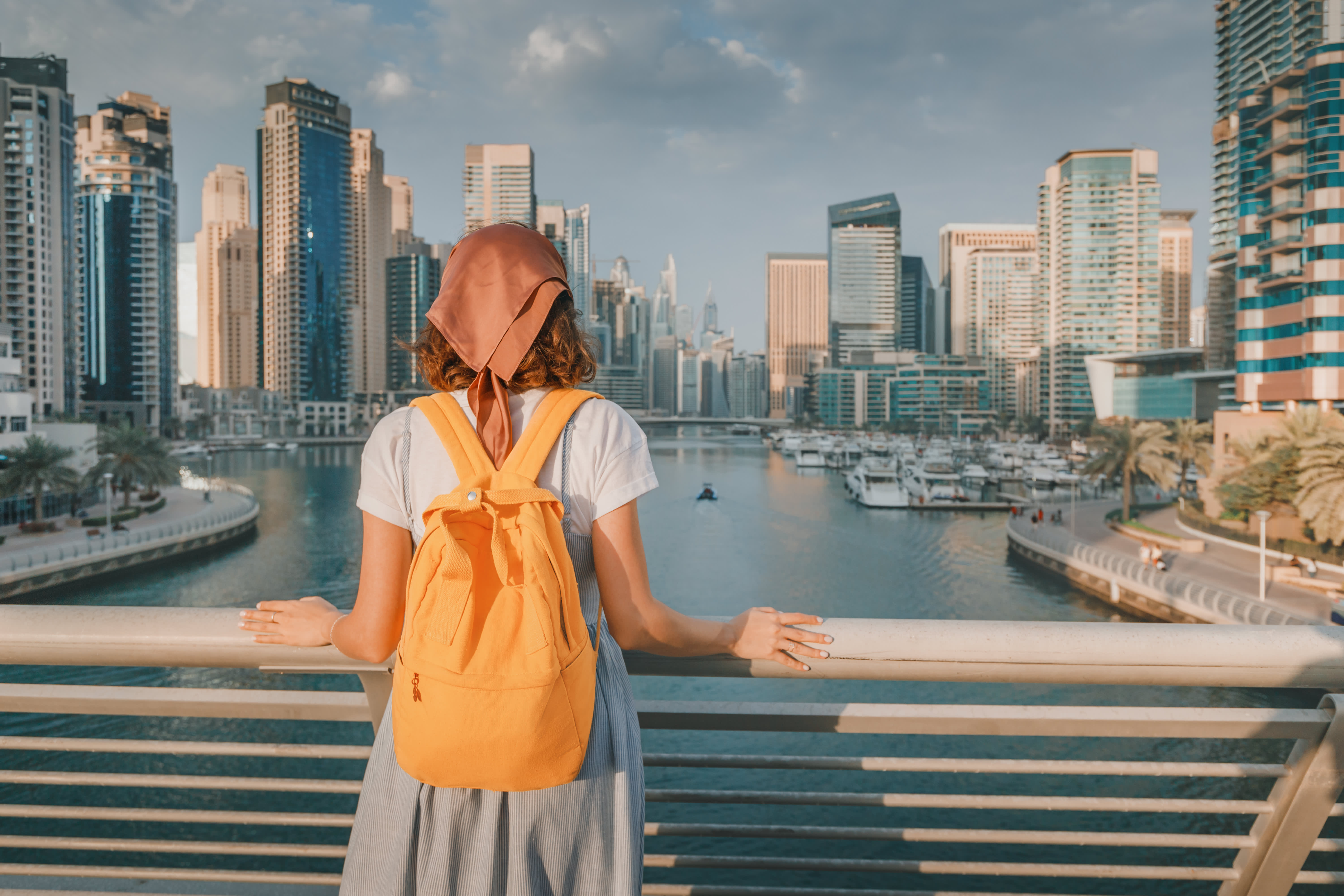Products You May Like
DUBAI, United Arab Emirates — Dubai’s economy contracted by 10.9% year-on-year in 2020, data from the Dubai Statistics Center revealed, reflecting a city hit hard by the coronavirus pandemic and the halting of global travel.
The commercial capital of the United Arab Emirates, Dubai is home to 3.4 million people and relies heavily on industries like hospitality, tourism, retail and travel, all of which suffered dramatic blows globally in the first year of the pandemic.
Sectors hit hardest in Dubai last year were, unsurprisingly, the arts, entertainment, and recreation sectors (-55%); transportation and storage (-35%); and accommodation and food service activities (-33%).
But growth this year has jumped, with data for the first quarter of this year showing an 11% rise from the previous quarter, although it declined by 3.7% year-on-year.
Transport and storage, and hotels and restaurants also declined compared to first quarter 2020 levels to weigh on headline growth, as travel and tourism remained below pre-pandemic levels, but the two largest sectors of the economy — wholesale and retail trade and financial services grew 2.8% and 3.5% year-on-year.
Dubai was a leader in reopening to tourism in July of 2020, becoming one of the first cities in the world to do so after a very strict lockdown that saw people confined to their homes and only able to leave with police permission. Nightlife and leisure activities resumed by late summer, with masks and social distancing remaining as anti-Covid measures.
By the winter months, the emirate became a hotbed for tourists craving normality, but a surge in Covid infections by February led several countries, particularly the U.K., to put the UAE on their no-travel lists.
The slow resumption in travel and delayed lifting of some countries’ travel bans has been a key source of pressure on the recovery.
“We expect a rebound in annual GDP growth from Q2 2021 off last year’s low annual base, but global restrictions on travel likely weighed on Dubai’s recovery in both Q2 and to a lesser extent in Q3,” analysts at Dubai-based bank Emirates NBD said in a note Monday. But “these travel restrictions have eased in recent weeks and we expect growth to accelerate in Q4,” the bank said.
Emirates NBD forecasts 4% growth for the emirate this year. As for the whole of the UAE, it forecasts “whole UAE GDP growth of 1.9% this year from -6.1% previously.”
With increased global travel and one of the fastest vaccination campaigns in the world, the UAE is well-positioned to see higher tourism numbers during the winter months of the fourth quarter, when warm weather and relaxed Covid restrictions are expected to draw travelers from colder shores. Dubai is banking on Expo 2020, its six-month mega-event delayed by a year due to the pandemic, to be a major tourism draw.
Real estate recovery to be uneven
The real estate sector, meanwhile, which was already several years into decline when the pandemic began, is seeing a strong but uneven rebound — made uneven in part by what many market observers criticize as over-building. The supply of real estate compared to demand has become more evident after Dubai’s majority-expatriate population dropped by 8.4% in 2020 due to the pandemic, the steepest population decline in the Gulf region.
Residential property prices in Dubai “have been rebounding strongly from a record low at end-2020 — since the peak in 2014 — on the back of pent-up demand from both international and local buyers, improved investor and consumer sentiment, a rebound in oil and gas prices, and gradual macroeconomic recovery, which in Dubai has been supported by high Covid-19 vaccination rates and new visa and corporate ownership rules,” analysts at S&P Global Ratings said in a report Monday.
Indeed, the emirate has introduced visa and business reforms designed to make it easier for foreigners to live and work in Dubai and fully own their businesses there, without the previous requirement of a local partner.
“Dubai’s real estate sector will likely benefit from the World Expo 2020 — which started a year late this October due to the pandemic,” the S&P analysts wrote. “But structural oversupply of residential properties will challenge price increases over the long term, making the recovery fragile.”
